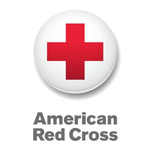
RED CROSS
Overnight Shelter Stays
The Red Cross opens shelters to make sure people have a safe place to stay, a hot meal and access to other support from trained volunteers. Every night a person stays in a shelter counts as one overnight stay; for example, a family of four staying in a shelter for three nights would total 12 overnight stays.
Distribution of Emergency Supplies
Emergency supplies help people in the immediate aftermath of a disaster and in the days and weeks that follow. Our comfort kits contain basic personal supplies needed in the aftermath of a disaster, such as a toothbrush, deodorant and shampoo. Other emergency supplies could include tarps, rakes, shovels, and trash bags to help people clean up their homes and return to normalcy. Emergency supplies can be handed out at convenient distribution centers or from an emergency response vehicle in affected areas.
Health & Mental Health Contacts
Red Cross health and mental health volunteers travel to disaster sites to help people cope. Health workers can provide first aid treatment for injuries, monitor the well-being of people staying in Red Cross shelters, and replace prescription medications or eyeglasses. Other workers specialize in providing emotional support and helping people to cope after a disaster.
Meals and Snacks
After a disaster, the Red Cross works with community partners to provide hot meals, snacks and water served at shelters or from Red Cross emergency response vehicles in affected neighborhoods.
Workers
Trained Red Cross volunteers and employees are ready to deploy within hours of a disaster to help. Ninety-five percent of our disaster workers are volunteers from across the country.
Emergency Response Vehicles (ERVs)
Mobile Response Vehicles, also known as ERVs, circulate throughout affected communities after disasters to hand out food, relief supplies, information, and comfort to those in need.

 (150) Amples Donated
(150) Amples Donated